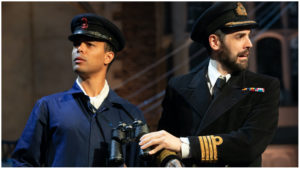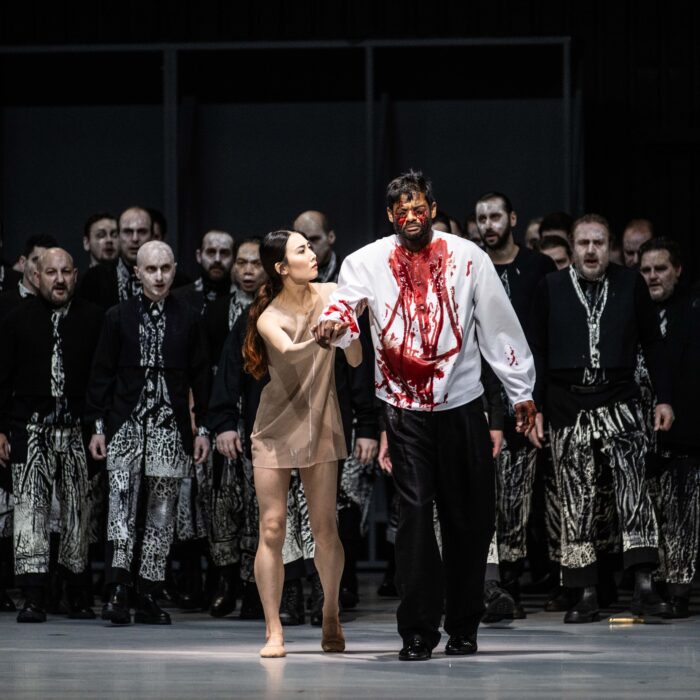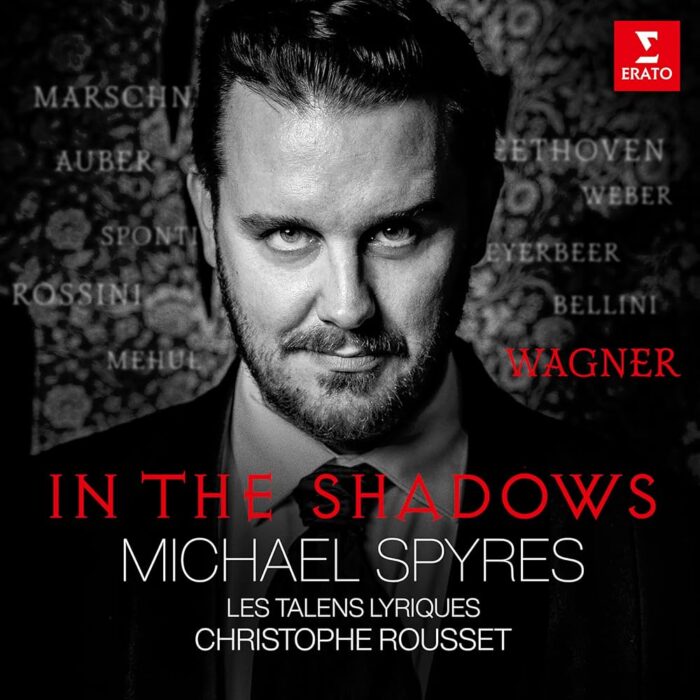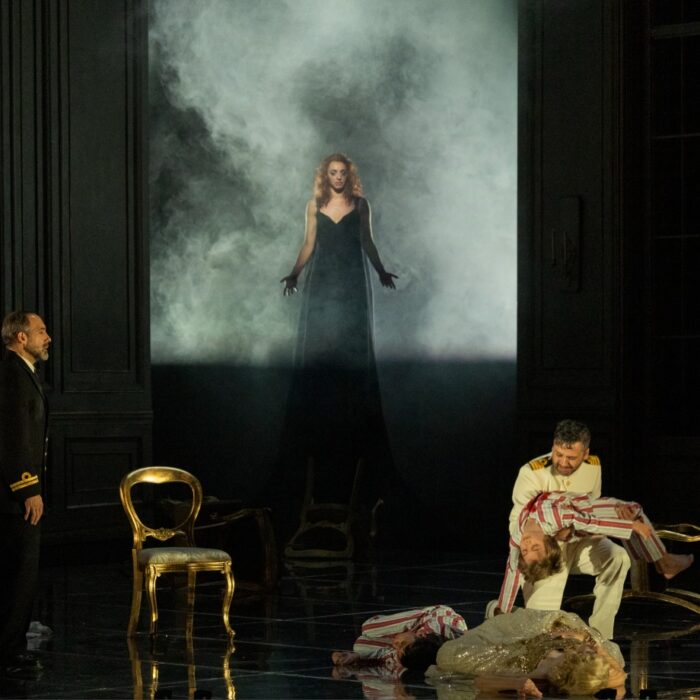
Opera Holland Park Review 2022: HMS Pinafore
A Well-Crafted, Unfussy Production from Charles Court Opera & John Savournin
By Benjamin Poore(Photo: Opera Holland Park 2022 © Ali Wright)
Following on from last season’s imaginative realization of “The Pirates of Penzance,” Charles Court Opera returned to the Holland Park stage in a co-production of “HMS Pinafore”. W.S. Gilbert and Arthur Sullivan’s satire on class, manners, and buffoonery as directed by John Savournin.
Savournin has built quite the reputation in G&S as both singer and director (he is the founder and artistic director of Charles Court Opera). Last year he directed and sang in “The Pirates of Penzance” at Holland Park, as well as the acclaimed G&S anthology show “G&S Express;” this year he played Captain Corcoran in Cal McCrystal’s anarchic production of “HMS Pinafore” at English National Opera.
Traditionalist Approach
Comparisons with the latter might prove invidious, given the different theatrical contexts of both productions, and the enormous resources – from a technical and dramatic point of view – that were available to ENO. But some contrasts are instructive. Charles Court Opera and Savournin take a relatively traditionalist approach to the staging of these classic comedies, cleaving to the original dialogue – McCrystal made considerable updates to the text and created new set pieces and characters out of whole cloth – and bending away from too much naughtiness or innuendo, as well as wild slapstick.
Much of the humor comes from David Hulston’s well-calibrated choreography, which was for the most part pinprick sharp. Savournin sets the operetta in something like the Royal Navy of the 1940s – when Buttercup and friends come aboard they sing into radio microphones à la the Andrews Sisters – with period costuming and designs from Madeleine Boyd (Dick Deadeye is a grubby engineer, appearing in overalls and welder’s mask). The choice of setting is more-or-less window dressing, rather than integrated into the storytelling or comedy, in line with the light touch feel of the production, though one wonders if more could be made of such an artistic choice.
The staging is relatively spare, with some of the lighting rig lowered onto the stage to suggest rigging and a cannon stage left; Act two opens with a well-crafted party scene that is probably the sumptuously detailed sequence of the show. There was ample use of the apron at the front of the stage – essentially for crisp delivery of dialogue and comic immediacy – that other productions in the space could surely learn from. Lighting by Jake Wilshire is intuitive and gently atmospheric.
Fine Turns
The result is a show that is poised and graceful, relying on acutely observed gesture and precision timing above extravagant props or absurdist flights of fancy. It’s on the gentler side, and rests very much on the central comic duo of Savournin’s Captain Corcoran, Richard Burkhard’s Sir Joseph Porter, who delivered the dialogue and arched eyebrows with impeccable finesse.
They were buttressed by a fine turn from Lucy Shaufer as Little Buttercup. It was all very well-honed but wanted for a little bite, particularly given the razor-sharp satire in the piece about over-promoted functionaries and the nonsenses of patriotism, which could’ve been used to push the audience’s buttons a little more. But there is no denying the warmth in the auditorium nor the prevailing sense of fun.
Musical performances were characteristically strong. Richard Burkhard’s lavishes the role of Sir Joseph Porter with proper singing, bringing the character to life through music-making as much as with his considerable acting chops, something seldom seen in a part where singing is a secondary consideration to the comedian or personality cast in the role.
Savournin brought equal vocal finesse to Corcoran, reminding us of the Verdian qualities of Sullivan’s melodramatic score in “Fair Moon, to thee I sing.” Lucy Schaufer’s Buttercup – again a role that is often given short vocal shrift in favor of silly accents – was luxurious indeed.
Peter Kirk sang Ralph Rackstraw with brightness and plangecy, graduating from his turn last year as Ferderick in “Pirates;” his voice had a studied naivete that sketched the melodramatic contours of the character.
Josephine was sung by Llio Evans with similar sweetness, though her voice occasionally struggled to sail over the orchestra when upstage. Themba Mvula bounded around the stage with puppyish energy as the chipper Bill Bobstay, excelling in a rough-and-tumble rendition of “A British Tar,” ably supported by Peter Lidbetter.
David Eaton, music director of Charles Court Opera, conducted a pared-back City of London Sinfonia – pairs of strings, single woodwinds and brass, one percussionist – in a lithe and flexible reading of the score. The differently balanced forces had the effect of evoking the kind of musical hall or pit orchestras of the period, rather than the more lush Romantic forces that Sullivan’s so-called serious compositions keyed into.
Playing was unfussy and bright, though a lack of monitors for the singers – whether technical fault or deliberate choice – meant for a few ensemble fumbles when singers were in front of the orchestra downstage. But this was a lively show shot through with charming, if conventional, comedy.


